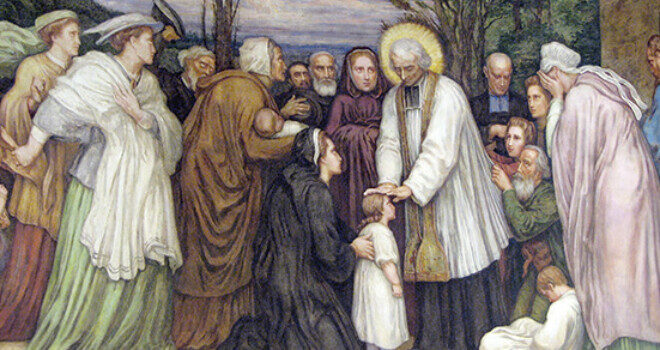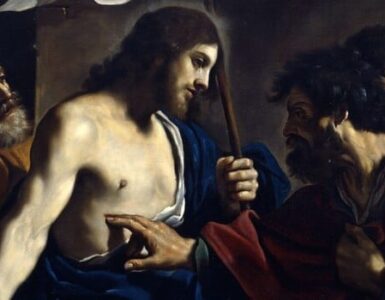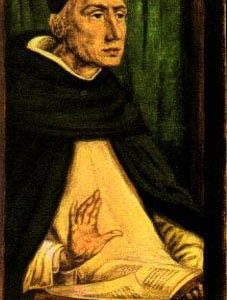Go out to all the world and tell the Good News. (Mk 16:15)
St. John Vianney was a simple parish priest who pastored a church in the tiny town of Ars, France. He was sent to Ars with just one mission: to bring love and religion to a town for which both were all but gone. It would have been an overwhelming, if not impossible task.
Why the loss of religion in that town? For the same reason that religion had all but disappeared in almost all of France; the French Revolution had managed to strike down and nearly wipe out entirely the faith of the people, leaving untold numbers both uneducated as well as uninterested in all things religious. Many in Ars no longer even believed in God.
Today, the Cure d’Ars is a household name in the Church, and those who know anything about St. Vianney’s life understand that he was largely responsible for the explosion of rediscovered faith that occurred not only in Ars, but throughout all of France. Vianney reignited hope in what by all appearances was a hopeless situation and rekindled the faith in the hearts of the people!
How did he accomplish such a monumental task? If we can understand the answer to that question, then perhaps we too can seek to correspond with the same grace that is required to turn around our own impossible situations, both in our families, as well as in our wider communities, where it can seem that faith is all but lost.
The word of the LORD came to me: Son of man, I have appointed you a watchman for the house of Israel. When you hear a word from my mouth, you shall warn them for me. (Ez 3:17)
In my twenties, as a newly reverted Catholic, I was so excited about my faith I could hardly stand it! For the first time in my life, I knew beyond the shadow of a doubt that God is truly real, and that the Church established by Jesus Christ is the one true Church. Like most new converts, I wanted everyone to discover the joy I had found! I wanted everyone to live this same truth.
Unfortunately, my excitement for the faith fell more into the category of “passion” and less into the category of “zeal.” What did my passion look like? Telling others about the “rules.” In my new role as self-appointed evangelist, I “informed” a friend who was a non-Catholic that while she was most welcome to join me at Mass, she was not to receive Communion. Now in fairness to me, I really did believe that to remain silent on the matter would have been an act of cowardice. This is precisely what the prophet Ezekiel warns us against.
If I say to the wicked man, You shall surely die; and you do not warn him or speak out to dissuade him from his wicked conduct so that he may live: the wicked man shall die for his sins, but I will hold you responsible for his death. (Ez 3:18)
The problem is, while I may not have lacked “courage,” my motive for speaking out certainly was not out of regard for my friend’s best interest. I just didn’t want her to offend my faith by receiving Jesus “unworthily.” Now, I don’t presume to know how Jesus looks upon the one who receives Him in the Eucharist without true faith in His presence. But I do know that in that moment, judging by the motivation of my own heart, the one I should have worried most about offending Jesus should have been me.
And yet, Ezekiel is pretty clear: we are obliged to warn others when they commit wrongdoing, especially if they are ignorant of it, lest we end up responsible for their sin! That is a lot of pressure on us. So how do we “warn” others about something as delicate as not receiving Communion unworthily without driving them further away? How did St. John Vianney speak out and warn others, and still manage to draw tens of thousands of people back to the faith? The answer lies in the most powerful word ever spoken in all of Church history: love. St. John Vianney loved his flock back to the Catholic Church.
Of course, this “love” plan doesn’t always seem to work for us; it may seem we can’t even manage to bring in just one soul, let alone an entire town! But perhaps our understanding of what it means to love the one in sin and error is a little different than that of St. Vianney. Avoiding awkward conversations is not the same as “love.” Because while it is true that I could have remained silent in an effort to avoid offending my friend, allowing her to receive the Eucharist in ignorance of the faith would not have been right either. We can be certain Jesus loved the people of His own hometown—these were the people He grew up with after all! And yet, His words of love still managed to provoke them to take “offense” (Mt 13:57). So what does this tell us? It tells us that how others receive our words is not the measure of whether we have “warned” them properly, according to God’s will. What is the measure? The measure is in what lies within our hearts.
Of course, St. John Vianney didn’t convert nearly all of France by simply batting his eyelashes at others so he could love each soul, one at a time. In fact, within nine years of becoming its pastor, Ars had become a pilgrimage site, and by the time Vianney’s life came to an end, over twenty thousand pilgrims were traveling annually to Ars. That’s a lot of people to invest the time and effort into loving individually! So how did Vianney personally convert each of those pilgrims? Actually…he didn’t.
St. John Vianney had a secret weapon which showered down grace upon souls by the thousands—and it’s a weapon that can be ours as well. St. John Vianney gave his life for the people, offering penance and prayer with all the love in his heart, thereby receiving grace for their conversion. St. John Vianney focused on performing loving acts of sacrifice on behalf of others, and then left the converting of souls up to God! Certainly, there would have been moments that required Vianney to “speak out” and “warn” the people in their sin and error. But most of the time, Vianney spent his days and nights pouring himself out as a libation, spending eleven to sixteen hours a day hearing confessions, and offering his penances and prayers on behalf of souls, each of whom he loved individually, with his whole heart.
From St. Vianney, let us learn the power of sacrificial offering. Let us learn the power of humility. Let us learn the power of love. It is a power that can be ours as well, one that can convert the whole world by the grace of God, one soul at a time.
Jean-Marie Vianney welcoming parishioners and pilgrims. (n.d.) [painting]. Retrieved from Arsnet.org.










